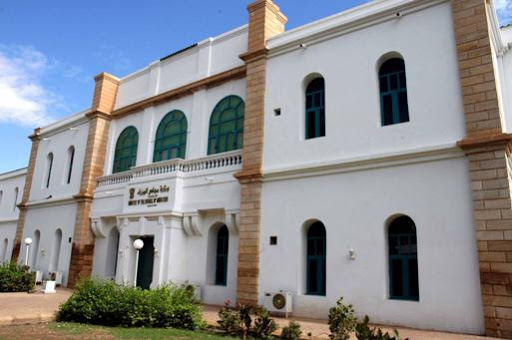Reports
Appointment of New Ministers: Meeting the Requirements of the Current Stage

Report by Rehab Abdullah
The cabinet reshuffle implemented by Chairman of the Sovereignty Council, General Abdel Fattah Al-Burhan, on Sunday involved dismissing four ministers and appointing new ones. The changes included relieving Ambassador Hussein Awad from his duties as Foreign Minister and appointing Ambassador Ali Youssef Ahmed Al-Sharif in his place. Additionally, Grahame Abdelkader was removed from his role as Minister of Culture and Information, and Khaled Al-Ayser was appointed instead. Osama Hassan Mohammed Ahmed was relieved from his position as Minister of Religious Affairs, and Omar Bakhit Mohammed Adam was appointed. Furthermore, Omar Ahmed Mohammed Ali was appointed as the Minister of Trade and Supply. This reshuffle has sparked significant discourse within Sudan, with varied opinions emerging regarding the selection of the new ministers.
These changes come at a time when Sudan is engaged in a fierce conflict against the Rapid Support Forces militia, ongoing since mid-April 2023.
Serving the “Battle for Dignity”
Experts have welcomed the decision by the Chairman of the Sovereignty Council to appoint new ministers for four ministries, viewing it as a positive step in serving the “Battle for Dignity” cause, as well as in strengthening the executive branch of government. Financial expert Walid Dalil praised the selection of Ambassador Ali Youssef, attributing it to the weak performance of the Foreign Ministry. He pointed out that diplomatic efforts to communicate the Sudanese army’s stance on current events have been insufficient and failed to meet the needs of this period, which demands more robust support for wartime efforts.
Dalil also highlighted the media’s limited effectiveness in keeping up with Sudanese events, as the majority of the population relies on the internet for updates on government actions and the battles at hand. He expressed confidence in the new Foreign Minister, Ambassador Ali Youssef, noting that Youssef’s extensive experience in diplomacy has previously yielded significant economic and political achievements for Sudan. Dalil also expected Al-Ayser to succeed, given his popularity with the people, who celebrated his appointment as Minister of Information—a rare phenomenon where a ministerial appointment garners widespread public approval.
The Chairman’s decision to task four members of the Council with overseeing the ministries was described as wise, given the need to assess the ministers’ performance in this critical phase.
A Loss of an Advocate in Open Media
Some, however, criticized the decision to appoint Khaled Al-Ayser as Minister of Information, labeling it as misguided. Critics argued that Sudan would lose Al-Ayser’s powerful voice in the media, where he has already made substantial contributions and tackled the numerous challenges facing Sudanese media. They opined that it would be better for Al-Ayser to continue his fight in open media rather than assume a ministerial role fraught with existing complexities, as discussed in an economic forum on WhatsApp, where some questioned why the country would risk losing such an influential figure in the face of uncertain outcomes.
While supporters of Al-Ayser’s appointment recognized the loss of his voice in defending Sudan’s image in external media and conveying the truth, they expressed confidence that Al-Ayser would be able to bridge this gap with a clear plan to open up media coverage, bringing Sudan’s realities to light in a post-conflict era.
Dispelling False Claims
Dr. Yasser Jamal remarked that Sudan’s image in foreign media resembles a “5-0 defeat” in soccer terms, believing that Khaled Al-Ayser can turn Sudanese media into a platform that reflects the country’s true state and dismantles the false narratives perpetuated by hostile parties. He acknowledged that Al-Ayser would face challenges, including the entrenched power struggles within the “three houses” of media, overlapping jurisdictions with other bodies, and a limited media budget. However, he noted that Al-Ayser’s deep vision and strategic outlook would be invaluable in facing these challenges, especially during this imposed war.
Ensuring Functional Governance
From an economic perspective, economist Dr. Haitham Fathi highlighted that the partial reshuffle affected four ministries: Foreign Affairs, Religious Affairs, Culture and Information, and Trade and Supply. Fathi emphasized the importance of having a Minister of Trade at this time, considering that the position had remained vacant for nearly six months. He noted that the economic sector faces numerous issues, particularly in imports and exports, due to conflicting policies and incomplete coordination between the Ministry of Trade, the Central Bank of Sudan, the Ministry of Finance, the tax authority, and the standards body—all agencies involved in trade and supply.
Fathi pointed out that many observers have expressed concerns over the poor performance of the three recently dismissed ministers. He also mentioned that other ministries might benefit from a reshuffle to enhance their roles, especially in this wartime context. He expressed hope for a specialized ministry for humanitarian affairs, which could focus on the needs of internally displaced persons and those affected by the war. He also suggested that the Ministry of Social Affairs and the Ministry of Labor and Administrative Reform could play more proactive roles in addressing the challenges faced by the public sector and ensuring continuity in governance.



